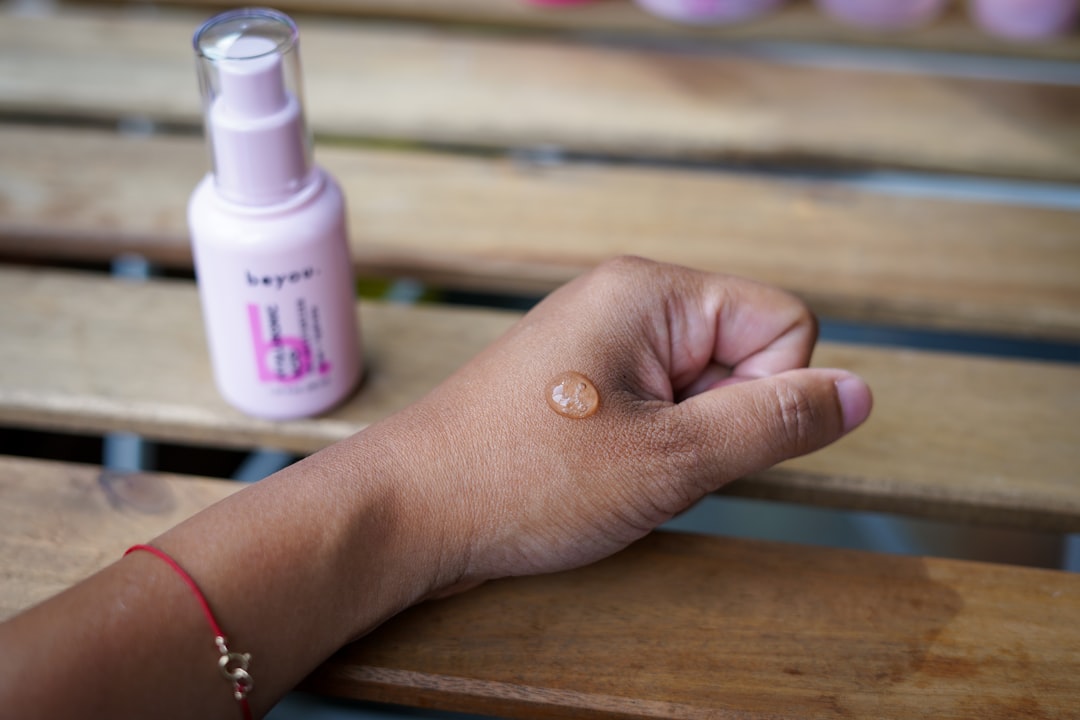Understanding your skin type is crucial in developing an effective skincare routine. There are generally four main skin types: normal, dry, oily, and combination. Normal skin is well-balanced, with small pores and few imperfections. Dry skin often feels tight and may appear flaky or rough. Oily skin is characterized by enlarged pores, a shiny complexion, and a tendency to develop acne. Combination skin is a mix of oily and dry, with an oily T-zone (forehead, nose, and chin) and dry cheeks.
It’s important to identify your skin type so that you can choose the right products and ingredients that will work best for you. For example, if you have oily skin, you’ll want to look for products that are oil-free and non-comedogenic to prevent clogged pores. If you have dry skin, you’ll want to use products that are hydrating and moisturizing to combat flakiness and tightness. Understanding your skin type will also help you determine how often you should exfoliate, cleanse, and moisturize.
Understanding your skin type will also help you identify any specific concerns or conditions you may have, such as acne, sensitivity, or aging. By knowing your skin type, you can tailor your skincare routine to address these concerns effectively. For example, if you have sensitive skin, you’ll want to avoid harsh ingredients and opt for gentle, soothing products. If you have aging skin, you’ll want to incorporate anti-aging ingredients like retinol and peptides into your routine.
Summary
- Understanding your skin type is crucial for choosing the right skincare products and routine
- Reading and understanding product labels helps in identifying the ingredients and their benefits for your skin
- Incorporating natural ingredients into your skincare routine can provide numerous benefits for your skin
- Proper storage and shelf life of natural skincare products ensures their effectiveness and safety for use
- Creating a customized skincare regimen tailored to your skin type and concerns is essential for achieving optimal results
- Utilizing natural skincare products can effectively address specific skin concerns such as acne, aging, or sensitivity
- Seeking professional advice and guidance from a dermatologist or skincare expert can help in addressing complex skin issues and finding the right products and routine
Reading and Understanding Product Labels
Reading and understanding product labels is essential for making informed decisions about the skincare products you use. When reading labels, it’s important to look for key information such as the list of ingredients, expiration date, and any specific claims or certifications. The list of ingredients is particularly important as it will tell you what the product contains and in what concentrations. This can help you identify any potential allergens or irritants and ensure that the product contains the active ingredients you’re looking for.
It’s also important to pay attention to the expiration date of the product. Natural skincare products often have a shorter shelf life than synthetic products, so it’s important to use them within the recommended timeframe to ensure their efficacy and safety. Additionally, look for any specific claims or certifications on the label, such as “organic,” “cruelty-free,” or “vegan.” These can help you understand the ethical and environmental impact of the product and whether it aligns with your values.
Understanding product labels will also help you avoid potentially harmful ingredients such as parabens, sulfates, and synthetic fragrances. By being able to identify these ingredients, you can make more informed choices about the products you use and avoid any potential negative effects on your skin or overall health.
Incorporating Natural Ingredients into Your Skincare Routine
Incorporating natural ingredients into your skincare routine can provide numerous benefits for your skin. Natural ingredients are often rich in antioxidants, vitamins, and minerals that can nourish and protect the skin. For example, ingredients like aloe vera, coconut oil, and shea butter are known for their moisturizing and soothing properties. Similarly, ingredients like green tea extract, vitamin C, and rosehip oil are rich in antioxidants that can help protect the skin from environmental damage and signs of aging.
Natural ingredients are also less likely to cause irritation or allergic reactions compared to synthetic ingredients. This makes them a great choice for those with sensitive or reactive skin. Additionally, many natural ingredients have anti-inflammatory and antibacterial properties that can help calm redness and breakouts.
When incorporating natural ingredients into your skincare routine, it’s important to consider how they interact with other products and any potential sensitivities you may have. For example, some natural ingredients like essential oils can be potent and may need to be diluted or used with caution. It’s also important to source natural ingredients from reputable suppliers to ensure their quality and purity.
Proper Storage and Shelf Life of Natural Skincare Products
Proper storage and understanding the shelf life of natural skincare products is essential for maintaining their efficacy and safety. Natural skincare products are often formulated without synthetic preservatives, which means they can be more susceptible to degradation over time. To prolong the shelf life of natural skincare products, it’s important to store them in a cool, dark place away from direct sunlight and heat. This can help prevent oxidation and microbial contamination that can compromise the product.
It’s also important to pay attention to the recommended shelf life of natural skincare products. This can vary depending on the formulation and ingredients used. For example, products that contain water or botanical extracts may have a shorter shelf life compared to oil-based products. Using products past their expiration date can not only lead to reduced efficacy but can also increase the risk of irritation or infection.
Understanding the proper storage and shelf life of natural skincare products will help you make the most of your investment in these products. It’s also important to use products consistently to prevent them from expiring before you have a chance to use them up.
Creating a Customized Skincare Regimen
Creating a customized skincare regimen involves tailoring your routine to address your specific skin type, concerns, and goals. This may involve using different products in the morning and evening, incorporating targeted treatments, or adjusting your routine seasonally. For example, those with oily skin may benefit from using a lightweight gel cleanser in the morning and a balancing toner in the evening to control excess oil production. Those with dry skin may opt for a hydrating serum followed by a rich moisturizer to combat dryness.
In addition to considering your skin type, it’s important to consider any specific concerns or conditions you may have. For example, if you have acne-prone skin, you may want to incorporate a salicylic acid treatment or a clarifying mask into your routine. If you have hyperpigmentation or sun damage, you may want to use a vitamin C serum or a brightening exfoliant.
Creating a customized skincare regimen also involves being consistent with your routine and giving products time to work. It’s important to introduce new products gradually to monitor how your skin responds and make adjustments as needed. Additionally, it’s important to be patient and realistic with your expectations, as it can take time to see results from skincare products.
Utilizing Natural Skincare Products for Specific Skin Concerns
Utilizing natural skincare products for specific skin concerns can be an effective way to address these issues without exposing your skin to potentially harmful ingredients. For example, natural ingredients like tea tree oil and witch hazel are known for their antibacterial properties and can be effective in treating acne without causing dryness or irritation. Similarly, natural ingredients like chamomile and calendula are known for their soothing properties and can help calm redness and inflammation in sensitive or reactive skin.
Natural skincare products can also be effective in addressing signs of aging. Ingredients like retinol (derived from vitamin A), hyaluronic acid, and peptides are commonly used in natural anti-aging products to promote collagen production and improve skin texture. These ingredients can help reduce the appearance of fine lines and wrinkles without the potential side effects associated with synthetic alternatives.
When utilizing natural skincare products for specific skin concerns, it’s important to be consistent with your routine and give products time to work. It’s also important to pay attention to how your skin responds and make adjustments as needed. Additionally, it’s important to use products as directed and not exceed recommended usage in an attempt to see faster results.
Seeking Professional Advice and Guidance
Seeking professional advice and guidance is important for developing an effective skincare routine that addresses your specific needs and concerns. A dermatologist or skincare professional can help you identify your skin type, assess any specific concerns or conditions you may have, and recommend appropriate products and treatments. They can also provide guidance on how to use products effectively and safely.
Professional advice is particularly important if you have persistent or severe skin concerns such as acne, eczema, or rosacea. A professional can help determine the underlying cause of these issues and recommend targeted treatments that may not be available over the counter. They can also monitor your progress over time and make adjustments as needed.
In addition to seeking professional advice for specific concerns, it’s also important to have regular skin check-ups to monitor any changes in your skin health. This is particularly important if you have a family history of skin cancer or other dermatological conditions. A professional can help identify any potential issues early on and recommend appropriate interventions.
In conclusion, understanding your skin type is crucial in developing an effective skincare routine tailored to your specific needs. Reading product labels is essential for making informed decisions about the products you use while incorporating natural ingredients into your skincare routine can provide numerous benefits for your skin. Proper storage and understanding the shelf life of natural skincare products is essential for maintaining their efficacy and safety while creating a customized skincare regimen involves tailoring your routine to address your specific concerns and goals. Utilizing natural skincare products for specific skin concerns can be an effective way to address these issues without exposing your skin to potentially harmful ingredients while seeking professional advice and guidance is important for developing an effective skincare routine that addresses your specific needs and concerns.
In conclusion, understanding your skin type is crucial in developing an effective skincare routine tailored to your specific needs. Reading product labels is essential for making informed decisions about the products you use, while incorporating natural ingredients into your skincare routine can provide numerous benefits for your skin. Proper storage and understanding the shelf life of natural skincare products is essential for maintaining their efficacy and safety. Creating a customized skincare regimen involves tailoring your routine to address your specific concerns and goals. Utilizing natural skincare products for specific skin concerns can be an effective way to address these issues without exposing your skin to potentially harmful ingredients. Seeking professional advice and guidance is important for developing an effective skincare routine that addresses your specific needs and concerns. By taking these steps, you can ensure that your skincare routine is personalized and effective in promoting healthy, radiant skin.
Discover the latest innovations in skincare with Skin Wins: Celebrating the Best in Skincare Innovation. This article delves into the cutting-edge advancements in natural skincare products, offering valuable insights to complement the 10 Tips for Getting the Most Out of Natural Skincare Products. From managing acne-prone skin to harnessing the benefits of green tea in skincare, this comprehensive guide provides a holistic approach to achieving radiant and healthy skin. Explore more about skincare innovation here.
FAQs
What are natural skincare products?
Natural skincare products are made from ingredients that are derived from nature, such as plants, herbs, and minerals. These products are free from synthetic chemicals and are often considered to be gentler on the skin.
Are natural skincare products suitable for all skin types?
Natural skincare products can be suitable for all skin types, including sensitive, oily, dry, and combination skin. However, it’s important to choose products that are specifically formulated for your skin type to ensure the best results.
What are the benefits of using natural skincare products?
Natural skincare products are often praised for their ability to nourish and improve the skin without the use of harsh chemicals. They can help to soothe and hydrate the skin, reduce the risk of irritation, and provide antioxidant protection.
How can I get the most out of natural skincare products?
To get the most out of natural skincare products, it’s important to choose products that are suitable for your skin type and specific concerns. Additionally, using the products consistently and as directed can help to maximise their effectiveness.
Can natural skincare products help with specific skin concerns?
Yes, natural skincare products can be effective in addressing specific skin concerns such as acne, dryness, ageing, and sensitivity. Look for products that contain ingredients known for their ability to target these concerns, such as tea tree oil for acne or hyaluronic acid for hydration.
Are natural skincare products regulated?
In the UK, natural skincare products are regulated by the Cosmetic, Toiletry and Perfumery Association (CTPA) and must comply with the EU Cosmetics Regulation. This ensures that the products are safe for use and meet certain standards.
Can natural skincare products expire?
Yes, natural skincare products can expire. It’s important to check the expiration date on the packaging and to use the products within the recommended timeframe. Using expired products can lead to reduced effectiveness and potential skin irritation.
Are natural skincare products suitable for sensitive skin?
Natural skincare products are often a good choice for sensitive skin, as they are less likely to contain harsh ingredients that can cause irritation. However, it’s still important to patch test new products and to choose those specifically formulated for sensitive skin.
Can natural skincare products be used in combination with other skincare products?
Yes, natural skincare products can be used in combination with other skincare products, such as serums, moisturisers, and sunscreens. It’s important to layer the products in the correct order and to ensure that they are compatible with each other.
Where can I find high-quality natural skincare products?
High-quality natural skincare products can be found at reputable retailers, beauty stores, and online shops. Look for products that are certified organic or have positive reviews from customers and skincare experts.




